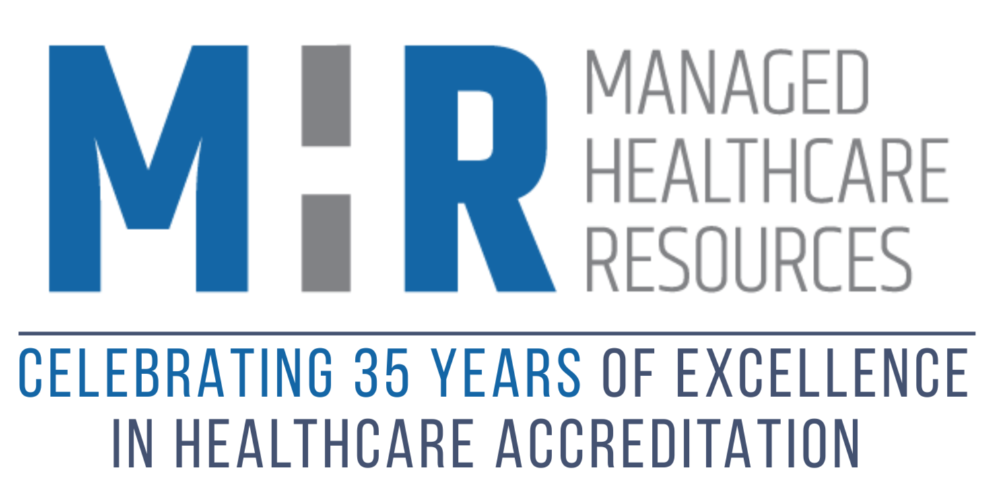
Word count: 860
Estimated time to read: 4 minutes
NCQA considers all pharmaceuticals to be part of pharmaceutical management, regardless of coverage under either a:
- Medical benefit where pharmaceuticals are normally administered in a hospital, transitional facility, clinic, or office
- Pharmacy benefits where a prescription is supplied to a retail pharmacy or for home delivery, and members have a copay and are subject to coverage decisions, such as quantity or frequency limits. Specialty pharmacy benefits apply to some high-cost drugs for rare and complex conditions according to the member’s benefits.
In this blog, we clarify how physician-administered pharmaceuticals fall under both NCQA standards UM 2 and UM 11.
Criteria on Medical Necessity and Pharmacy Management Procedures Differ
Criteria for pharmaceutical management are covered under both UM 2 Clinical Criteria for UM Decisions and UM 11 Procedures for Pharmaceutical Management. UM 2 relates to medical necessity criteria for procedures and treatment that are generally covered under a medical benefit, which may include pharmaceuticals that are administered by a physician, and UM 11 relates to criteria and clinical evidence used to adopt appropriate pharmaceutical management policies and procedures, including the formulary. Both UM 2 and UM 11 criteria, policies, and procedures can be used to determine the medical necessity of a requested pharmaceutical.
UM 2
UM 2 standards apply to clinical criteria used to make medical necessity decisions for behavioral health, medical, and pharmaceutical services, including specialty drugs, regardless of benefit coverage.
For example, a high-cost specialty drug for cancer that is covered under a pharmacy benefit must meet the clinical criteria standards in UM 2 AND the requirements under UM 11.
Non-staff network practitioners, specialists, and physicians who normally administer the drug must provide input and participate in developing and approving clinical criteria. This review may be done in a meeting of a UM Committee or a Pharmacy and Therapeutics (P&T) Committee.
UM 11
UM 11 standards apply to criteria used to adopt pharmaceutical management policies and procedures, such as decisions for inclusion in a formulary, tier level in the formulary, restrictions such as step therapy, quantity limits, or prior authorization requirements.
UM 11 standards apply to ALL pharmaceuticals, whether they are covered under the organization’s medical benefit or its pharmacy benefit.
A P&T Committee or a medical policy committee used to approve medical criteria for pharmaceuticals should follow the UM 11 requirement for including pharmacists and appropriate practitioners in the development of the procedures/criteria.
Points to remember
Provide three sets of committee minutes where criteria were discussed and approved.
- Record designations/practitioner type for practitioners reviewing and approving criteria (staff or non-staff and network). If the attendees at the meetings are merely a listing of practitioners, provide a separate roster that specifies whether they are staff or non-staff, as UM 2 requires non-staff involvement or documentation of good faith efforts to involve non-staff.
Include Criteria for Infusions and Supplies in Medical Policies
- Physicians administering pharmaceuticals, including infusions in a clinic or office setting, are subject to medical necessity review criteria under UM 2.
- Describe the appropriate practice setting for physician-administered infusions in your medical policy criteria.
- Medical supplies needed for patients’ self-injections or while transitioning from inpatient to home care fall under UM 11 and must include medical necessity criteria for coverage of supplies that may include quantities.
Points to remember
For each member, multiple medical policies or sets of criteria may apply to physician-administered pharmaceuticals, including the following:
- Drug
- Supplies
- Setting for administration
- Medical and pharmacy benefits may both
UM 11 Still Applies with State Carve-Outs
States may carve out the pharmacy benefit or formulary when physician-administered pharmaceuticals are covered under the medical benefit, such as with some Medicaid plans. Health plans must administer the benefit according to state regulations, and documentation for UM 11 is required. If there are discrepancies between the state requirements and standards, then the health plan must provide the regulation to NCQA for review.
Pharmaceutical Patient Safety Applies to All
NCQA recognizes that procedures and benefit plans for physician-administered pharmaceuticals in all organizations are not handled the same way. However, when it comes to patient safety, standard UM 11 C applies to all pharmaceuticals.
Medical teams, practitioners, and members must be notified when physician-administered pharmaceuticals are subject to Safety Recalls by the US Food and Drug Administration. Organizations are required to have a documented process to identify and notify all parties as appropriate.
Notify Members and Practitioners of Changes
On an annual basis and for updates, organizations must notify members and practitioners of changes in criteria and modifications in pharmaceutical management procedures. A documented process must describe how this notification is done and be demonstrated in materials such as a member handbook or newsletter and a letter to practitioners.
File Reviews
Denials for physician-administered pharmaceuticals administered in a healthcare setting are included in the pharmacy denial universe. All UM 4-7 requirements apply.
Call to Action
- Review your policies for physician-administered pharmaceuticals.
- Ensure there is a safety recall process for physician-administered pharmaceuticals.
- Align criteria for medical necessity, supplies, and settings.
- Conduct a mock file review of your Pharmacy Universe.
- MHR is here to help. Contact or email us.



